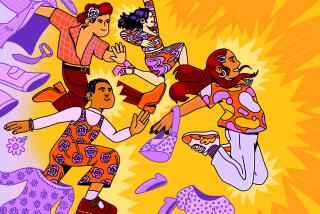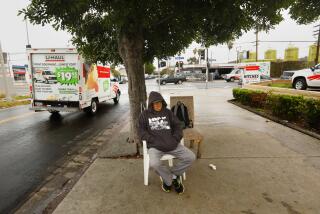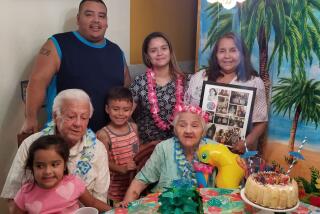‘I feel abandoned, but I’m not the only one.’ LGBTQ Latinos suffer in the pandemic’s shadows
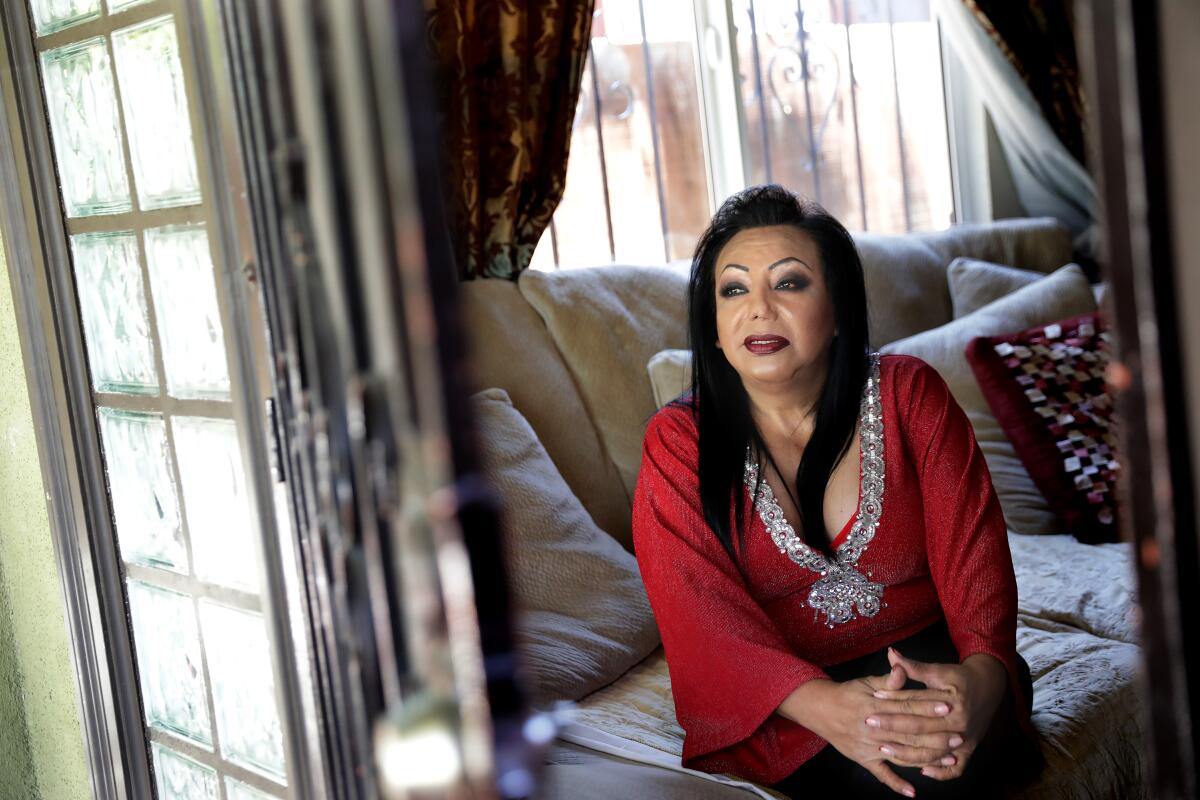
It has been seven months since Marimar, a transgender woman, was infected with the coronavirus, but the disease and the pandemic still affect her physically and financially.
Behind on rent by five months and her body weakened by illness, the 57-year-old Los Angeles County resident doesn’t know where to turn for assistance.
“The help I have had has come from my transgender friends, but from the government I don’t know where to ask, since there is no specific help for my community,” said Marimar, who came by herself from Veracruz, Mexico, to the United States in 1993 in search of work.
“I feel abandoned,” she continued, “but my instinct tells me that I am not the only one who feels that way. The LGBTQ community, especially Latinos and immigrants, is suffering even more with this pandemic economically, but many do not say it out of shame.”
Marimar’s impressions are backed up by national figures in a recent report by the Human Rights Campaign Foundation in conjunction with PBS Insights. The report, released in September, shows that Latino LGBTQ people in the United States are more likely than the general population to have suffered adverse effects on their employment due to the virus. Forty percent of LGBTQ Latinos surveyed between April 16 and Sept. 3 saw their work hours reduced due to the coronavirus outbreak.
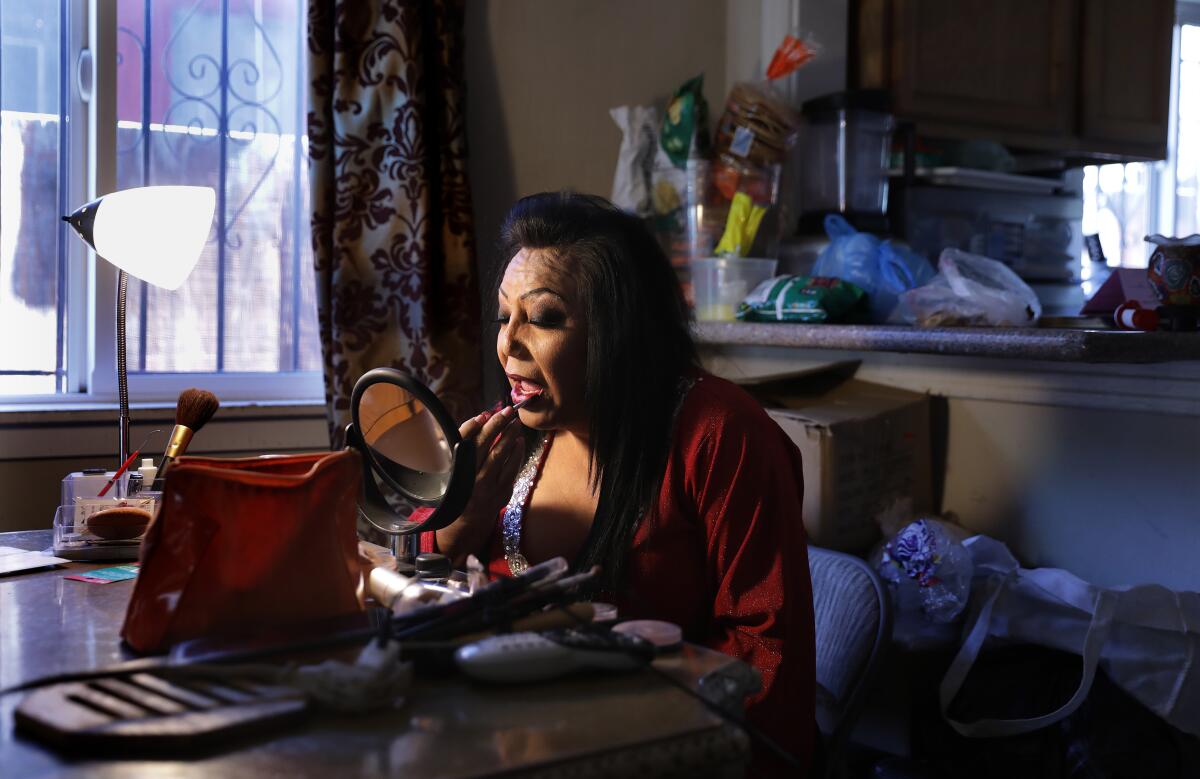
In addition, 20% of those surveyed were unemployed; 13% requested delays in paying their rent.
In California, 5.3% of the population identifies as part of the lesbian, gay and transgender community. Among them, 48% are white non-Latino and 35% are Latino, according to a UCLA Williams Institute report.
Before the pandemic, Marimar had her own home-based business providing food delivery services — pozole, menudo, meat for tacos, chiles rellenos and handmade tortillas. But it began reeling after the restrictions of March 2020.
“It was barely enough to cover my expenses,” she said. “The clientele was down, and money stopped coming in.”
The worst period came when she fell ill in mid-July. For a week she had symptoms of COVID-19, then was hospitalized for 16 days.
“By then fear invaded me. I couldn’t breathe on my own, and I didn’t know what was going to happen to me,” she said. “Now I feel weak even after all these months, but I’m more worried about not being able to work, which has me depressed.
“On top of everything, I cannot have the federal monetary stimulus benefits, since I am undocumented.”
Alphonso David, president of the Human Rights Campaign Foundation, notes that many in the already marginalized Latino LGBTQ community work in industries that have been disproportionately disrupted by the pandemic, including food service, restaurants, stores and hospitals.
“A lot of these LGBTQ Latino people are front-line workers,” he said, “and if you are a front-line worker, that means you are more susceptible to COVID-19.”
David believes there is more that local elected officials can do to ensure that essential resources — rental assistance, mental and health services, job training and placement — reach all communities, particularly “those disproportionately impacted and marginalized.” Those living in the country without legal status have been particularly vulnerable during the pandemic because they’ve been ineligible to receive the two rounds of federal stimulus checks that have helped millions of other struggling Americans stay afloat.
Immigrants like Marimar also fear the so-called public charge rule implemented by the Trump administration, which denies green cards to immigrants who ask for housing assistance, food stamps, housing vouchers or other forms of public assistance. The rule has faced legal challenges and is set to be reviewed by the U.S. Supreme Court.
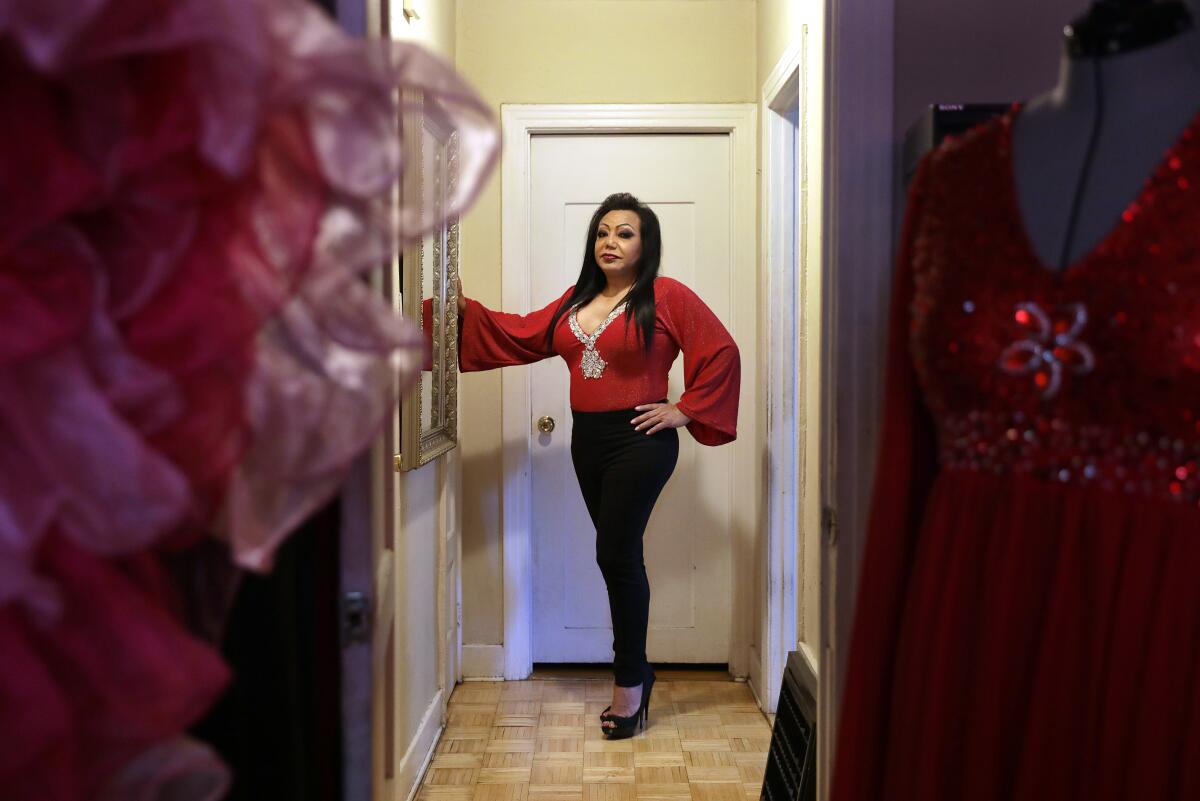
Immigrants without documents also do not qualify for the Covered California health plan unless they are 19 or younger, or pregnant.
Bamby Salcedo, president and CEO of the TransLatin@ Coalition, an organization that focuses on the issues of the Latino transgender community, agrees with David that state and federal governments must do more for this community, which often suffers in silence.
To date, there are no official statistics on how immigrants without legal status who are among the LGBTQ and Latino LGBTQ communities in California have been affected by the pandemic, but no official studies are necessary for the government to recognize the need for action, she said.
“We have many challenges in trying to obtain access to the social services that the community needs to obtain work, housing, mental health [services] and even food, and the pandemic has increased that need,” said the transgender activist, who resides in Los Angeles County.
“Calls to [our] help center, for example, have increased by as much as 500%,” she added, “with people asking for help with housing, paying bills or food. We have been able to give them some help thanks to donations from private foundations, but we have not received anything from the state or federal government.”
Ari Gutiérrez, co-founder and president emerita of Latino Equality Alliance, said the work of her organization had been limited by the pandemic, but for now it is helping the community by distributing food every Friday and supplying information about the coronavirus.
“We cannot say a percentage,” Gutiérrez said, “but it is a fact that more people have approached us asking for help, saying that they have gotten sick, do not have a job and do not have money.
“Organizations need more help from governments,” she added, “because people need to inform themselves about the few resources available. As a Latino LGBTQ community, we have always been back in line and suffering in silence, and now we are even further behind.”
It wasn’t until the end of September that Gov. Gavin Newsom signed a measure requiring healthcare providers to track COVID-19 and all other communicable diseases in the LGBTQ community.
A bill introduced last spring by Sen. Scott Wiener (D-San Francisco) that was passed in the summer by the California Legislature and signed into law by Newsom requires healthcare workers to report data illustrating how the pandemic is affecting the LGBTQ community.
Wiener’s bill, supported by the Equality California organization, makes data reporting permanent and requires all counties and healthcare providers to collect data not only on race, age and gender but also sexual orientation and gender identity when documenting coronavirus cases, as well as other communicable diseases. This is partly because rates of respiratory issues (from smoking), HIV/AIDS, cancer and homelessness are higher in the LGBTQ community. Additionally, LGBTQ people are more likely to work in the service industry and in front-line jobs, according to Equality California.
Rick Chavez Zbur, executive director of Equality California, says “the data will be essential to identify who, in our community, be it a gig economy worker, a farmworker or someone in the services, is more affected by COVID-19 and what we can do to support them in the future.”
Last May, Equality California launched the LGBTQ + COVID-19 Help Center, a help line and a webinar series where people can easily access resources on unemployment, food assistance and government programs, among other services.
“The reception we saw was amazing, and the number of calls we received has doubled every month since May,” Zbur said. “Whether it’s helping people find a local testing site, a food bank, a mental health professional or unemployment assistance, it’s clear that our LBGTQ-plus community, and frankly everyone, is desperate for help during this uncertain time.”
Los Angeles County Supervisor Sheila Kuehl concurred that the pandemic was wreaking havoc among poor and marginalized communities of color who could least afford the economic devastation, including the trans community.
“Our eviction moratorium, [government] rental assistance programs, food donation events and prioritized test sites have been established to support those who need it most,” she said in an emailed statement.
“In the coming months, as the county enters recovery mode, we will continue to prioritize supporting the communities that have endured the brunt of the hardships of the pandemic,” Kuehl said, without giving further details.
For Marimar, local and state governments ideally would focus on providing more monetary relief, housing and access to physical and mental health follow-up services.
The only hope Marimar has for now is a recent announcement by Newsom that his 2021-2022 budget will include funds for economic recovery for immigrants who lack legal status, but the state Legislature has until June 15 to discuss, review and approve the governor’s proposal.
“I have nothing left but to ask God to heal so that I can move on,” she said, “and maybe in the future I will get the help I need.”
Rivera is a Los Angeles Times en Español staff writer.
More to Read
Start your day right
Sign up for Essential California for news, features and recommendations from the L.A. Times and beyond in your inbox six days a week.
You may occasionally receive promotional content from the Los Angeles Times.
